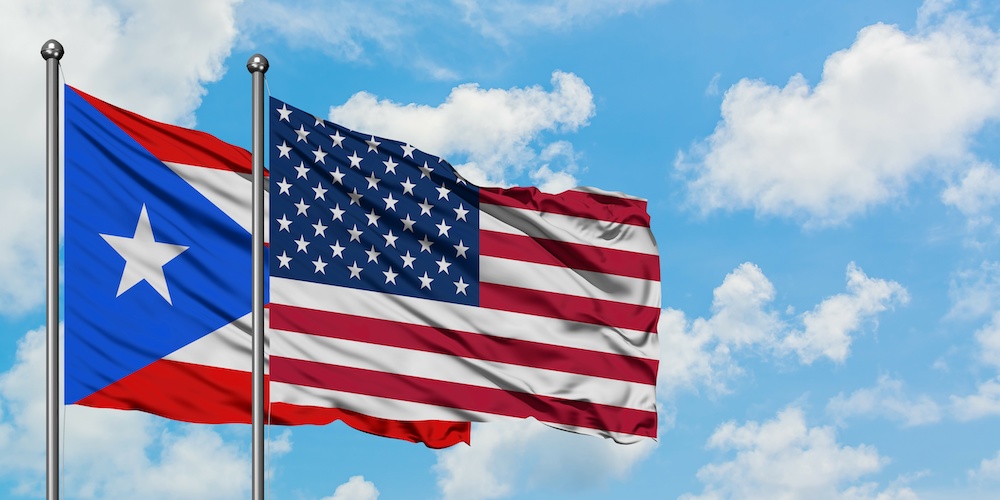The Puerto Rico Status Act, a compromise bill between the Puerto Rico Statehood Admissions Act and the so-called Self-Determination Act, was introduced in the House of Representatives on Friday by Rep. Raul Grijalva, who is the chair of the Natural Resources Committee. This is the committee of the House that is responsible for territories like Puerto Rico.
The bill calls for another plebiscite in Puerto Rico, with three options for Puerto Rico’s status: independence, free association, and statehood. Continuing as a territory is off the table.
The Puerto Rico Status Act was presented last month as a discussion draft. A public hearing was held in San Juan and there was a public reaction page where everyone could share their thoughts on the bill. The bill that was introduced in Congress is not exactly the same as that discussion draft.
Citizenship
One of the biggest problems with the discussion draft was the vagueness of the sections on citizenship. U.S. citizenship was mentioned under each of the status options. However, it was not made clear that permanent U.S. citizenship was guaranteed only under statehood.
In the new version, independence still has this plan for citizenship:
“Puerto Rico has full authority and responsibility over its citizenship and immigration laws, and birth in Puerto Rico or relationship to persons with statutory United States citizenship by birth in the former territory shall cease to be a basis for United States nationality or citizenship, except that persons who have such United States citizenship have a right to retain United States nationality and citizenship for life, by entitlement or election as provided by Federal law.”
The free association option has the same words. This section was updated: “Individuals born in Puerto Rico to parents both of whom are United States citizens shall be United States citizens at birth, consistent with the immigration laws of the United States, for the duration of the first agreement of the Association.”
The plan is that, for as long as the first agreement of Articles of Free Association lasts, U.S. citizens who are citizens of the Associated Republic of Puerto Rico will be able to pass on their citizenship to their children born in Puerto Rico.
If this language stays in the bill and the bill passes, then people who were born in Puerto Rico and are therefore U.S. citizens could keep their U.S. citizenship for life even under independence. Their children could inherit U.S. citizenship under free association.
It is essential that voters understand that several things can still happen:
- This language can change before the bill is passed, if Congress doesn’t agree.
- The U.S. can change its laws regarding citizenship for Puerto Rico, even after a vote takes place. People born in the territory of Puerto Rico have their citizenship under a law passed in 1917, and that law can be changed by Congress at any time.
- Articles of Free Association can also change or the relationship of free association can be ended, by either Puerto Rico or the United States, at any time.
Continued citizenship is not guaranteed under independence or free association. The Puerto Rico Status Act does not say anything about people born in Puerto Rico and living in the states, and these people do not get to vote on the Island’s status.
What about citizenship under statehood? Here’s what the bill says: “United States citizenship of those born in Puerto Rico is recognized, protected, and se- cured under the United States Constitution in the same way such citizenship is for all United States citizens born in the other States.”
Since ether U.S. Constitution requires that new states be admitted on an equal footing with existing states, this cannot be changed.
Taxation
The new version of the act makes it clear that U.S. citizens and companies in Puerto Rico will be subject to the U.S. tax code, regardless of the status decision. U.S. citizens who live in other countries still have to file U.S. federal income tax returns.
This was not made clear in the discussion draft.
The new bill also specifies that citizens of a new nation of Puerto Rico will be able to work and travel freely in the United States during a transitional period and that the United States will continue to provide federal funds to Puerto Rico at the current rate, again for a transitional period.
The bill also updates the responsibility of the President of the United States to review laws currently applying to Puerto Rico and to ask Congress to make any necessary updates.
Good news
The good news is that, if this bill is passed, Puerto Rico will no longer be an unincorporated territory belonging to the United States. If, as we expect, Puerto Rico voters ponce again choose statehood, we will be the 51st state of the union. In the unlikely event that voters choose independence, either with or without free association, we will be an independent country.
Before either of these things can happen, Congress must approve this bill. Please contact your representatives and ask your friends and family living in states to do the same.








One response
First and foremost I would like to thank Mr. Hoyer a true American Patriot and congressional leader for all he’s done to Finally bring the Natural Resources Committee and all parties to come together to resolve the unjust colonial status that has been affecting proud American citizens in the Island of Puerto Rico. I urge all the American Patriots Leaders in the Senate to support our American Patriots in Puerto Rico so that Puerto Rico could finally become the 51st State we earned it and have sacrificed with dignity since WW1 until Present. You Our Leaders Have The Opportunity To Make History. Thank You.